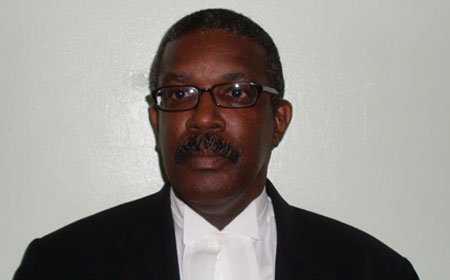BELIZE CITY, Mon. July 25, 2016–A landmark challenge to a clause in Belize’s Criminal Code which includes sodomy and bestiality as crimes punishable by 10 years in prison, met its first legal challenge some years ago, when Caleb Orozco, president of the United Belize Advocacy Movement (UNIBAM), an organization representing roughly 70 people from the LGBT community, launched a constitutional challenge, calling on the court to use its “legislative pen” to strike out any reference to sodomy as an unnatural crime.
Orozco is asking the Supreme Court to declare that Section 53 is null and void and of no effect in relation to sex between consenting adult males. He is seeking an order to amend Section 53 to only retain the criminalization of bestiality (human sexual relations with animals).
After a preliminary challenge which saw UNIBAM removed as claimant in 2012—after the churches successfully argued that UNIBAM has no legal standing to bring such a challenge alleging breach of fundamental constitutional rights—the matter went to full hearing from May 7 to May 10, 2013.
Meanwhile, that same year, Jamaican LGBT activist Maurice Tomlinson launched a claim before the Caribbean Court of Justice (CCJ), challenging Immigration laws in both Belize and Trinidad which Tomlinson said impair his right to hassle-free movement, guaranteed under the Revised Treaty of Chaguaramas, which establishes the Caribbean Community.
Last month, the CCJ handed down its ruling, dismissing Tomlinson’s case, since he was never actually impeded from traveling to either CARICOM country.
“Mr. Tomlinson’s case failed, however, because he was unable to show that he had ever been or would be in danger of being prejudiced by the existence of the challenged provisions of the Immigration Acts of Belize and Trinidad and Tobago,” said a press statement from the CCJ, in summarizing the ruling.
Belize has not been in the practice of denying entry to foreigners because they are homosexuals; neither are homosexuals hauled before the court on sodomy charges—except for cases of rape or sex with minors.
Soon after the CCJ’s ruling, the Chief Justice announced that a date had been set for the decision on UNIBAM. Benjamin had come under public criticism from Orozco for the delay in handing down his decision.
Deputy Solicitor General, Nigel Hawke, who represented the Government of Belize in the Tomlinson matter, said during the Orozco trial that Belize’s Constitution does not address one’s “sexual orientation,” and so he does not see how having same-sex intercourse in the privacy of one’s home could be deemed a fundamental right.
In his legal challenge, Orozco had claimed breaches of his fundamental rights—a claim which has been resisted not just by the Government of Belize, named as the defendant in the case, but also by the church community, represented as interested parties through the Roman Catholic Church of Belize, the Belize Church of England (Corporate Body) and the Belize Evangelical Association of Churches. Other interested parties are the Commonwealth Lawyers Association, the Human Dignity Trust, and the International Commission of Jurists.
It has been reported that as many as 15 lawyers have appeared in court during trial. Among them was Senior Counsel Eamon Courtenay, who argued in court that Orozco was not personally victimized as a result of Section 53. Since he did not suffer any personal prejudice, Courtenay said, Orozco’s claim had no real value.
Courtenay told reporters that the proper place for Orozco to seek changes to the law is the National Assembly.
Christopher Hamel-Smith, attorney for Orozco, argued against the application of Section 53, saying that it is inconsistent with the Constitution when addressing what consenting adults do in private.
He added that under the Belize Constitution, laws which are inconsistent with the Constitution are considered void, to the extent of that inconsistency.
The hearing before the Supreme Court is the first round of the legal battle. Whatever Wednesday’s decision is, it will likely be appealed at the Court of Appeal and subsequently at the Caribbean Court of Justice, as the diametrically opposed parties will no doubt continue to hold fast to their respective positions.

